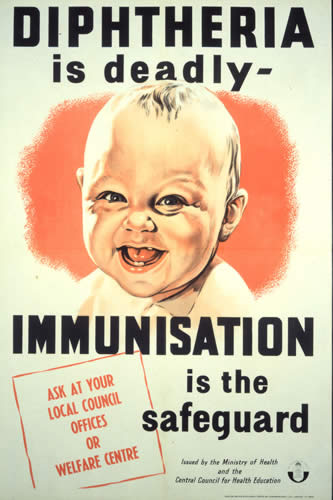With Beech Hill School already closed because of 14 confirmed cases of the contagious bacterial infection diphtheria, a special campaign was launched in Luton aimed at stopping the spread of the disease in the town.
Dr Wanklyn, the acting School Medical Officer in the absence on military service of Dr W. Archibald, admitted at a meeting of the Education Committee that it would take a good deal to wholly stamp out the disease. He attributed the recent spread to contacts and to unrecognised cases which were moving about.
He was endeavouring to visit at once every case which was notified, and he then examined everyone who had come into contact with the case. In this way he had in one house discovered two other cases, and in other places one case. No one thought those people were ill as they showed hardly any sign, but by moving about they were spreading infection. Now they had been isolated and the spread from these cases had been stopped.
As to unrecognised cases, Dr Wanklyn said he had no doubt there were plenty of people who went about with diphtheria and recovered. During their course of illness they spread the disease and, because of this, something in the way of "mine sweeping" was necessary.
With that in view he had already examined the throats of all the children attending the Dunstable Road School and was able to say that none of the children had diphtheria manifest in their throats. The Beech Hill School was closed and, although it was possible to examine 900 children in a day at their school, it was another matter to examine 1,300 children at something like 500 homes.
As there had been 14 cases, however, it was desirable that something should be done, and arrangements were accordingly made for the children to muster that morning [Tuesday, September 29th] . As a result he discovered one case, while in one or two others there was very great suspicion. He said it should also be mentioned that 25 children had been excluded until bacteriological reports could be obtained.
The two principal things he had in view were to keep excluded scholars under observation and to go on with the examination of the school children until he had seen them all. Following up these children and contacts was a matter in which infinite care and patience were required, and all that any care and patience on his part could do would be most gladly done.
[Luton News, October 1st, 1914]

